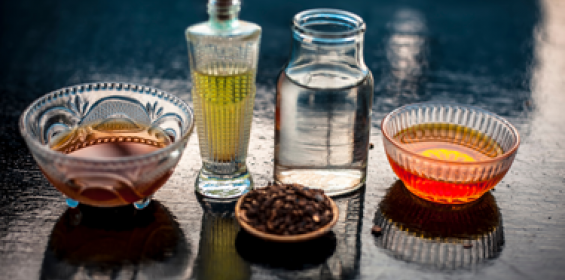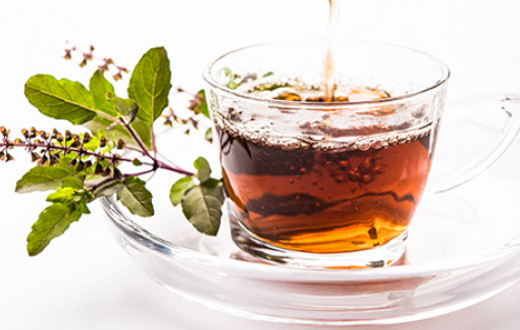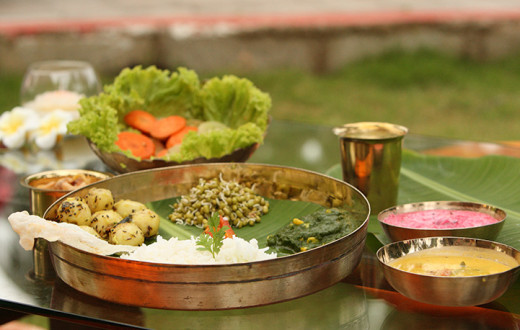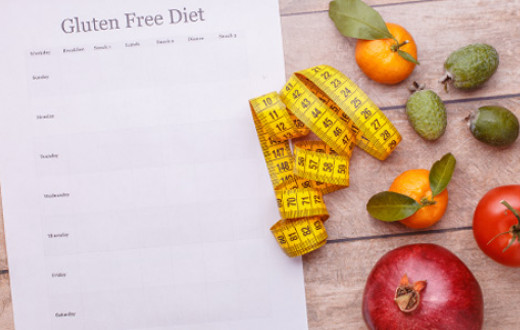Am I more vulnerable at this time because of my pregnancy? If I contract Covid-19, will it be more serious and critical than normal? Can I pass it on to my unborn child in the womb? Should I opt for a home birth as opposed to the maternity ward of a hospital or clinic to reduce the chance of infections? You must be bursting with these sorts of questions. We will answer all these questions and more in this article.

Here’s the first of many innumerable lessons you will learn on this beautiful journey towards delivery and the life thereafter - babies rarely allow you to stick to your plans! In the hourly-changing situation that we live in today, thanks to the deadly coronavirus, this is even more the case.
Join a Free workshop on Yoga, Meditation and Breath
So, we’ve tried to bring to you all the known facts, precautions, and studies that exist on coronavirus to help you enjoy a peaceful and safe pregnancy.
Facts pregnant women should know about COVID-19
While coronavirus itself is not a new disease, this latest infection has been caused by a new strain - Novel Coronavirus (COVID-19), now called severe acute respiratory syndrome coronavirus 2 (SARS-CoV-2). Scientists and medics are still studying data to come up with more conclusive outcomes about how this virus affects pregnant women and the birthing process.
Here are some of the outcomes of research studies:
- While many governments around the world have categorized pregnant women as a vulnerable population, along with elderly citizens over the age of 60 years and infants, this is rather a precautionary measure. It is not known that pregnant women with no underlying conditions are more at risk than the rest of the general population of contracting coronavirus.
- There is not enough evidence that pregnant women will pass on the virus to their unborn child during pregnancy or during childbirth.
- It is advisable for pregnant women to practice social distancing, good hand hygiene and seek professional and medical support when necessary.
- There have been cases of women with COVID-19 in China who have delivered preterm. So, studies are underway to see if this is more common for pregnant women with Covid-19.
- Mothers with COVID-19 pneumonia have had cesarean births and some studies point to women with COVID-19 being more likely to have a cesarean rather than a natural birth.
- There have been cases of mothers with COVID-19 passing on the virus to their babies. However, all the babies recovered.

Study on effect of coronavirus on pregnancy
1. A small study conducted by JAMA (Journal of the American Medical Association) Pediatrics, on a group of 33 women with COVID-19 in Wuhan, China, has revealed that only three of the neonates were born with the virus though all have recovered well since. Of these three, only one presented serious complications. It is also not clear if the virus was passed on through the womb or post-delivery though the authors say it appears to be of maternal origin. The amniotic fluid, cord blood and breast milk were found to be negative for the virus.
2. In two other studies conducted in China and published in the JAMA, it was found that three neonates had antibodies or immune proteins called igM as per a report in the New York Post. These three babies did not test positive for the virus. It is, however, uncertain if the babies developed these in response to contracting the virus or it was passed down by the mother through the womb.
3. The US’ Centers for Disease Control and Prevention (CDC) states that limited studies show that in women with COVID-19 and Severe Acute Respiratory Syndrome (SARS-CoV), the virus has not been found in breastmilk. However it is not known if it can be transmitted to the child through breast milk. So, there is much research still to be done on the harmful effects of this virus.
4. A study published in February 2021 by the BMJ has found that
a.The most common clinical manifestations of Covid-19 in pregnancy were fever (40 percent) and cough (41 percent).
b.The odds of admission to an intensive care unit, invasive ventilation, and need for extra corporeal membranes were higher in pregnant and recently pregnant women than non-pregnant, reproductive-aged women.
c.Those with comorbidities like hypertension, pre-existing diabetes, and preeclampsia were more likely to have severe complications.
5. A study published in the International Journal of Medical Sciences 2021 has found that
a. pregnant women may be susceptible to developing more severe symptoms after infection with respiratory viruses, due to physiological changes of the immune and cardiopulmonary systems during pregnancy. Fever (68 percent) and cough (34 percent) are also the most common symptoms in pregnant women with COVID-19.
b.pregnant women who develop COVID-19 pneumonia, have a similar rate of intensive care unit (ICU) admission as compared to the non-pregnant women, but higher rates of preterm and cesarean delivery.
6. The World Health Organization (WHO) reported a large cohort study of 147 pregnant women with COVID-19, where only 8 percent and 1 percent were severely and critically ill, respectively.
Given the limited information on this subject, prevention is perhaps the best, and sometimes only, cure. So, here are some precautions that you should follow if you are pregnant.
Precautions against coronavirus for pregnant women
- Avoid people who are coughing, sneezing or sick. If you have such people at home, have them self-quarantine themselves in a room and avoid contact with them till they recover. Ensure they wear a mask.
- Cover your cough or sneeze by coughing/ sneezing into your elbow or into a tissue (and dispose of it immediately).
- Wash your hands with soap and water or an alcohol-based (between 60-95 percent alcohol) sanitizer regularly.
- If the hospital that is delivering you is not an exclusive maternity hospital, ensure that the maternity ward is in a separate building/ wing. This is to ensure that you do not come in contact with any patient who could be a carrier of the virus.
- Avoid travelling in public transport as far as possible. And, completely avoid domestic and foreign travel.
- Work from home if you must.
- Avoid public gatherings - even family functions. Use social media and modern technology to keep in touch with family and friends.
- Stay in regular touch with your health care provider through the phone and ensure his/ her availability during your pregnancy and delivery. If you have any other conditions such as heart disease, ensure that you consult your specialist about precautions to take. It is advisable to keep the contact of a community midwife handy, if possible, to avoid going to a hospital in case of any emergency.
- At this time, it is possible that the number of suggested scans and doctor visits may be reduced. However, if you have any necessary scans due, ensure you book an appointment with your healthcare provider to enable him/ her to manage the patient crowd and prepare for your visit by sanitizing the clinic/ hospital.
- If you are Covid positive, postpone your antenatal checks to 14 days after the date of your test, if possible.
- Some mothers may want to deliver their babies at home now given the chances of infection at hospitals. It is important to curtail the number of visitors to strictly only those who are required to be there in such a case. Health care providers are suggesting that if you have tested positive for COVID-19, it is better not to deliver at home.
- Women should take particular care in their third trimester to practice social distancing - stay two meters or six feet away from people.
- Wash your hands thoroughly when breastfeeding your child or pumping milk into a bottle.
- One of the biggest concerns when you are pregnant during the pandemic is your mental health. Make sure you have someone to talk to. Let your doctor know if you are feeling depressed. Ensure that you are surrounded by loving and caring people.

The CDC has suggested that infected mothers of newborns should:
- Wash their hands with soap and water or an alcohol-based sanitizer, before touching the newborn
- Wear a mask when within six feet of the infant
- Wear a face mask and wash your hands thoroughly before breastfeeding to prevent passing on respiratory droplets to the newborn
- Wash hands thoroughly before touching a pump in case you express milk through pumps – in this case, if possible, it would be better if someone who is healthy feeds the infant
- Stay at least six feet away from the baby as much as possible
- Even after your isolation period has ended, continue to wash your hands thoroughly before you touch the infant. For your reference, note the period of isolation:
- For symptomatic patients, isolation ends 10 days after the date of your first symptoms, and you have had no fever for 24 hours without medication, and your other symptoms show signs of recovery.
- For asymptomatic patients, isolation ends 10 days after you tested positive for Covid-19.
Tips on looking after babies
- Infants younger than two should not wear masks or face shields.
- Limit the number of visitors to reduce the risk of spreading Covid-19.
- Ensure the caregiver (if it is not you) takes all the hygiene and social distancing precautions mentioned.
Vaccination for pregnant women
The health ministry in India has suggested that pregnant women should not undergo vaccination as there were no clinical trials for pregnant women. However, since pregnant women have been classified as high-risk, medical professionals around the world have suggested that this has to be an individual decision taken along with your healthcare provider, where you weigh the benefits of taking the vaccine against the potential vaccine risks.
Preventive Ayurvedic care for pregnant women
Ayurveda advises that the Apana Vayu must be kept in balance during pregnancy. This is the downward-flowing energy that must be maintained to enjoy a healthy pregnancy and delivery. Restoring balance in Apana Vayu is a matter of following a good diet, taking adequate rest, and getting an oil massage.

I. A wholesome and healthy diet is one of the best preventive medicines. Here is a month-wise break-up of useful foods that you should include in your diet:
| Month | Suggested foods to include as per Ayurveda |
| 1 | Wholesome food + Cold milk with naturally sweet supplements like grapes, dates, raisins and other sweet herbs |
| 2 | Wholesome food + Boiled milk with naturally sweet supplements as mentioned in the first month |
| 3 | Wholesome food + Milk with honey and ghee mixed with naturally sweet supplements in the first month + Sastika rice (red rice that matures in 60 days and has more zinc and iron than white rice) with milk |
| 4 | Wholesome food + Milk with 12g butter and honey mixed with naturally sweet supplements as mentioned in the first month + Sastika rice with curd + Soups |
| 5 | Wholesome food with milk and clarified butter with naturally sweet supplements as mentioned in the first month + Sastika rice with milk + Ghee |
| 6 | Ghee boiled with naturally sweet supplements as mentioned in the first month + Sastika rice with ghee + Gruel with clarified butter |
| 7 | Food sweet in taste with ghee - in smaller quantities + naturally sweet supplements as mentioned in the first month * Reduce salt to a minimum and avoid drinking water immediately after your meal |
| 8 | Milk + Rice prepared with milk in semi-solid or liquid form with ghee (gruel) |
| 9 | Soup with cooked rice gruel (as in Month 8) with ghee |
# Avoid alcoholic, spicy, stale, hot, and heavy foods.
II. Additionally, from the fifth month, begin a gentle Abhyanga or oil massage followed by a bath with lukewarm water. Apply oil on the abdomen, back, thighs, legs, and groin areas. You can even insert a tampon dipped in oil into the vagina to lubricate the passage taking care to maintain hygiene to avoid infections. This will ease pains in the joints such as the knees and hips, and tone and strengthen the muscles making contractions less painful thereby facilitating easy delivery.
III. It is also very important to maintain correct sleeping hours - at night. Avoid late nights and sleeping in the daytime.
IV. If you have the go-ahead from your gynaecologist or midwife, keep yourself physically fit with yoga asanas. And mentally fit with some guided meditations.
Why guided meditations?
Guided meditations can help you disconnect from all the anxiety and stress related to the pandemic that you must be feeling now. While there is no place to go to, to get away from it all, meditation can help you feel lighter and more energized wherever you are. Add some instrumental music to your sessions and you will feel totally at peace. Try this in the morning and evening and you will find that your whole approach to your pregnancy becomes calmer, quieter, and more optimistic.
Be prepared! New norms during delivery
Today, hospitals have barred non-patients from entering the hospital’s waiting area, let alone the labor ward during delivery, as was the norm earlier. As the second wave has been very severe, this rule is likely to continue. So, you will have to deliver your baby with the assistance of hospital attendants only, as your partner will not be allowed into the ward - to contain the spread of infections. Look at it as a different experience and go through it joyfully.
It is definitely a unique time in the world today. You might have had plans to celebrate this special time with your family and friends. Naturally, you were looking forward to some physical and mental support from them and so, the segregation must be stifling. What can help is practicing physical distancing rather than social distancing as some health care personnels are calling it. You can still keep in touch as often as you would like through modern technology. After all, your loved ones are just a phone call away.
Your positive thoughts will allow your baby to be born healthy and safe in a newer and more sanitized world! Enjoy the rare quietness of the world outside and supplement it with a peacefulness that resonates from within you.
To this effect, stay strong and stress-free with the power of meditation, breath, and yoga. Know more here.
Written with inputs from Dr. Sharika Menon, Ayurvaidya, Sri Sri Tattva
This article has also sourced information that was published in public health agency sites such as the Centers for Disease Control and Prevention (CDC) and the Indian Council of Medical Research (ICMR).
We’d love to hear from you
Leave your comments @artofliving






































